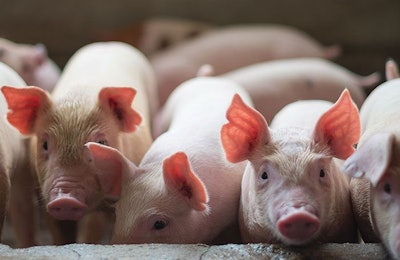
The U.S. Department of Agriculture (USDA) said it is taking additional steps to keep African swine fever (ASF) from entering the U.S.
Although ASF does not affect humans, it is highly contagious and deadly among pigs, cannot be cured and has no vaccine. ASF has been spreading throughout pig farms and wild boar in China and parts of Europe since last summer, and has resulted in the death or culling of hundreds of thousands of pigs. It recently was detected for the first time in Vietnam.
The USDA is taking the following steps to intensify the prevention of ASF’s entry into the United States:
- Work with Customs and Border Patrol (CBP) to train and add 60 additional beagle teams for a total of 179 teams working at key U.S. commercial, sea and air ports
- Coordinate with CBP on the further expansion of arrival screenings at key U.S. commercial sea and air ports – including checking cargo for illegal pork/pork products and ensuring travelers who pose an ASF risk receive secondary agricultural inspection
- Increase inspections and enforcement of garbage feeding facilities to ensure fed garbage is cooked properly to prevent potential disease spread
- Heighten producer awareness and encourage self-evaluations of on-farm biosecurity procedures
- Work to develop accurate and reliable testing procedures to screen for the virus in grains, feeds and additives, and swine oral fluid samples
- Work closely with officials in Canada and Mexico on a North American coordinated approach to ASF defense, response and trade maintenance
- Continue high-level coordination with the U.S. pork industry leadership to assure unified efforts to combat ASF introduction
“We understand the grave concerns about the ASF situation overseas,” said USDA Undersecretary for Marketing and Regulatory Programs Greg Ibach. “We are committed to working with the swine industry, our producers, other government agencies, and neighboring countries to take these additional steps.”
New research out of Kansas State University has confirmed that animal feed contaminated with ASF virus can sicken swine, prompting scientists and industry leaders to call for caution among feed producers and importers.
View our continuing coverage of the African swine fever outbreak.

















